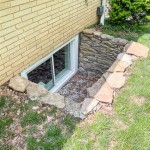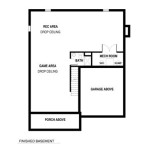Essential Considerations for Choosing the Best Flooring for Basement Bathrooms
Transforming your basement into a functional and stylish living space often involves creating a comfortable and practical bathroom. Selecting the right flooring for your basement bathroom is crucial to ensure durability, moisture resistance, and aesthetical appeal.
Basement bathrooms, unlike above-ground counterparts, present unique challenges due to their potential for moisture and humidity. Understanding the characteristics and benefits of different flooring options will help you make an informed decision that meets your specific needs.
1. Moisture Resistance
Moisture is a primary concern in basement bathrooms. Choose flooring materials that are inherently moisture-resistant or treated to withstand moisture absorption. Ceramic tiles, vinyl flooring, and epoxy coatings offer excellent moisture resistance.
Ceramic tiles are highly durable and easy to clean. Vinyl flooring provides a waterproof and flexible option with a wide range of style choices. Epoxy coatings create a seamless, moisture-proof surface that is resistant to stains and wear.
2. Durability
Basement bathrooms experience frequent foot traffic and potential heavy items. Opt for flooring that can withstand wear and tear over time. Porcelain tiles, laminate flooring, and engineered hardwood are all durable options.
Porcelain tiles are harder than ceramic tiles and can handle heavy loads without cracking. Laminate flooring offers a budget-friendly option with high durability and resistance to scratches and dents. Engineered hardwood combines the beauty of natural wood with the stability and moisture resistance of plywood.
3. Warmth and Comfort
Basement bathrooms can be cold and uncomfortable, especially during the winter months. Consider flooring that provides warmth and comfort underfoot. Carpet, radiant floor heating, and heated tile floors are all excellent choices.
Carpet adds softness and warmth to the bathroom, but ensure it is moisture-resistant or treated to prevent mold growth. Radiant floor heating provides a warm, even distribution of heat throughout the floor. Heated tile floors offer a luxurious and practical solution, combining durability with warmth.
4. Style and Aesthetics
The flooring you choose should complement the overall design of your basement bathroom. From classic to modern styles, there are numerous options to match your taste.
Natural stone tiles offer a classic and sophisticated look. Metallic epoxy coatings can create a sleek and modern industrial aesthetic. Ceramic tiles come in a vast array of colors, patterns, and finishes to suit any style.
5. Maintenance and Cleaning
Choose flooring that is easy to maintain and clean. Smooth surfaces like ceramic tiles and vinyl flooring can be effortlessly wiped down with a damp cloth. Laminate flooring resists stains and scratches, requiring minimal upkeep.
Carpet requires regular vacuuming and occasional deep cleaning. Radiant floor heating systems may require professional servicing periodically. Heated tile floors can be easily cleaned with a damp mop.
Conclusion
Selecting the best flooring for your basement bathroom requires careful consideration of factors such as moisture resistance, durability, warmth, aesthetics, and maintenance. By understanding the unique characteristics and benefits of different flooring options, you can make an informed decision that meets your specific needs and creates a comfortable and stylish bathroom space in your basement.

The Best Basement And Bathroom Flooring Options

What Is The Best Flooring For Basements Get Pros And Cons

9 Best Tile Options For Your Bathroom Floor

6 Inspiring Ideas For Basement Flooring In Portland

Laminate Flooring For Basements Hgtv

Basement Bathroom Reveal And The Best Tile Of 2024 Oh Sweet Basil

What S The Best Flooring For A Cement Basement Floor

Best Bathroom Flooring Cork Tile For Rest Of The House Icork Floor

The Cost Of Bathroom Tile For Top 6 Styles Sweeten Stories

Best Bathroom Flooring Cork Tile For Rest Of The House Icork Floor
See Also








